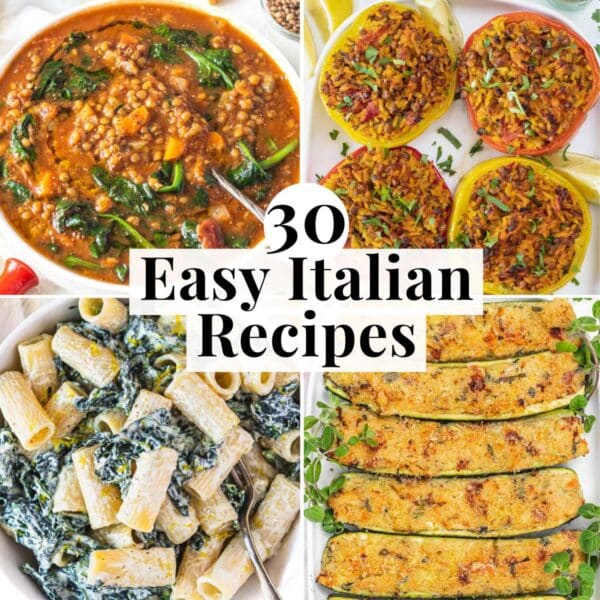Our recipe combines earthy cooked lentils with nutty tahini, fruity olive oil, and tangy lemon juice to create a protein-rich, light, and ultra-creamy dish. Serve this lentil hummus recipe as a spread in a sandwich, as a dip for pita bread or veggie sticks, or add a dollop to grain bowls and salads for a creamy protein boost. Dietary Note: this recipe is suitable for a vegetarian, vegan, and gluten-free diet. It’s low in cholesterol and saturated fat.Don’t have time to read the full blog post? JUMP TO RECIPE HERE!
What is lentil hummus?
Ingredients & substitutions for lentil hummus
How to make lentil hummus
Serving suggestions
Variations
Storage & Make ahead
More vegan dip recipes
More lentil recipes
This lentil hummus recipe is a thick creamy lentil dip similar to traditional hummus, but where we substitute lentils for chickpeas. With our tips, you can make the creamiest lentil hummus in about 10 minutes in a food processor. Like roasted red pepper hummus and hummus without tahini, lentil hummus is not the most traditional Middle-Eastern recipe but a delicious way of incorporating fiber-rich, mineral-rich, and protein-rich lentils into your diet. Here’s our guide on how to cook lentils if you need some guidance. Serve this lentil dip next to other Eastern Mediterranean and Middle-Eastern dishes. It’s particularly delicious on a Mezze Platter with other small dishes such as falafel, baba ganoush, and muhammara. It also pairs well with roasted vegetables such as roasted eggplant, zucchini, and whole-roasted cauliflower. Finally, because it’s so rich and creamy, it’s lovely next to a refreshing salad. Our favorites are tabouli, shirazi, and cucumber-tomato salads. Uh, and don’t forget warm pita bread for dipping.
Lentils
You can make this lentil hummus recipe with canned lentils or, as we most often do, with dry lentils that you previously cooked in water until tender. We recommend using brown lentils or green lentils. Here’s our guide on how to cook lentils if you need guidance. To make red lentil hummus, you’ll need cooked red lentils.
Lentil cooking liquid
Lentil cooking liquid, or the canning liquid in a can of lentils, is essential when making the best lentil hummus. It adds a richer lentil flavor while keeping the lentil dip light and airy.
Tahini
We recommend tahini made from 100% hulled sesame seeds with a light color and pourable consistency. Dark pasty tahini is usually bitter, and we don’t recommend it for hummus. In our experience, it is best if the tahini is imported from Eastern Mediterranean countries like Lebanon or Israel.
Lemon
We recommend fresh lemon juice. Substitute a splash of apple cider vinegar for lemon juice. You can also use citric acid, which has the advantage that it doesn’t oxidize, as opposed to fresh lemon juice. This means that lentil hummus made with citric acid will keep fresh longer.
Extra virgin olive oil
We add a small amount to the hummus and a drizzle on top.
Garlic
Garlic is optional in hummus. Fresh garlic is best. Don’t use too much garlic; its flavor strengthens as the lentil dip sits in the fridge.
Parsley
Fresh parsley is used to garnish the lentil hummus. Flat-leaf parsley is what’s most delicious in this recipe as it grows naturally in Mediterranean countries.
Spices
Optional. You can add a pinch of cumin. Paprika is generally added to the top for garnish.
Salt
We recommend sea salt or kosher salt. Drain the canned or cooked lentils, but save their storage or cooking water. To a food processor, add lentils, lentil water, lemon juice, and salt. Blend for 3 minutes. Scrape down the sides of the food processor, then add tahini, garlic (optional) and cumin (optional). Blend for 3 more minutes. Add olive oil, and if necessary, add an extra splash of water. Blend for 2 more minutes until creamy and airy. Tip: Depending on your taste, you might want to add more tahini, lemon juice, salt, garlic, or cumin. Transfer lentil hummus to a serving bowl, swirl with a spoon, and drizzle with good quality extra virgin olive oil and chopped flat-leaf parsley. You can garnish with a pinch of smoked paprika, toasted sesame seeds, lentils tossed in olive oil, and chopped parsley. We love garnishing this dish with a sprinkle of dukkah, an Egyptian spice blend with plenty of flavor, texture, and aroma.
Pita bread or pita chips Focaccia bread Fresh veggie sticks to dip Tabbouleh salad Shirazi salad Tzatziki sauce Spread on crostini or bruschetta, and serve with other dips such as white bean dip, sour cream, and eggplant dip.
As the main meal, simply use it as a spread or topping:
Pita Bread
Focaccia
Shirazi Salad
Tzatziki
In a piadina wrap with leafy greens and falafel In a hummus sandwich with tomatoes and avocado. On rice or couscous with a serving of Greek salad or tomato salad Spread it on top of flatbread pizza with olives, leafy greens, and sun-dried tomatoes
Greek Cucumber Salad
Couscous Salad
Cauliflower Salad
Whole Roasted Cauliflower
Here’s our classic hummus recipe.
Roasted red pepper hummus
This chickpea-based roasted red pepper hummus is a delicious variation with jarred bell peppers or home-roasted bell peppers. Here’s our roasted red pepper hummus.
Hummus without tahini
This is the best way to make hummus without tahini and still give it a full-bodied flavor. Here’s our hummus without tahini recipe. Refrigerator: Store lentil hummus in an airtight container for 5 days. If it dries out, stir in warm water to make it creamy. Take it from the refrigerator 15 minutes before serving for the best flavor. Freezer: We don’t recommend freezing hummus.
Avocado Spread
Muhammara
Mutabal
Zaalouk (Moroccan Eggplant Dip)
Lentil salad Quinoa lentil salad Lentil curry Easy lentil tabbouleh Lentil bolognese Cauliflower lentil salad Italian lentil pasta Sweet potato winter salad Zucchini boats Lentil soup
Lentil Salad
Zucchini Boats
Lentil Curry
Lentil Bolognese
30 High Protein Vegetarian Meals
25+ Lentil Recipes (easy meals)
30 Easy Italian Recipes
Mediterranean Diet Recipes






































